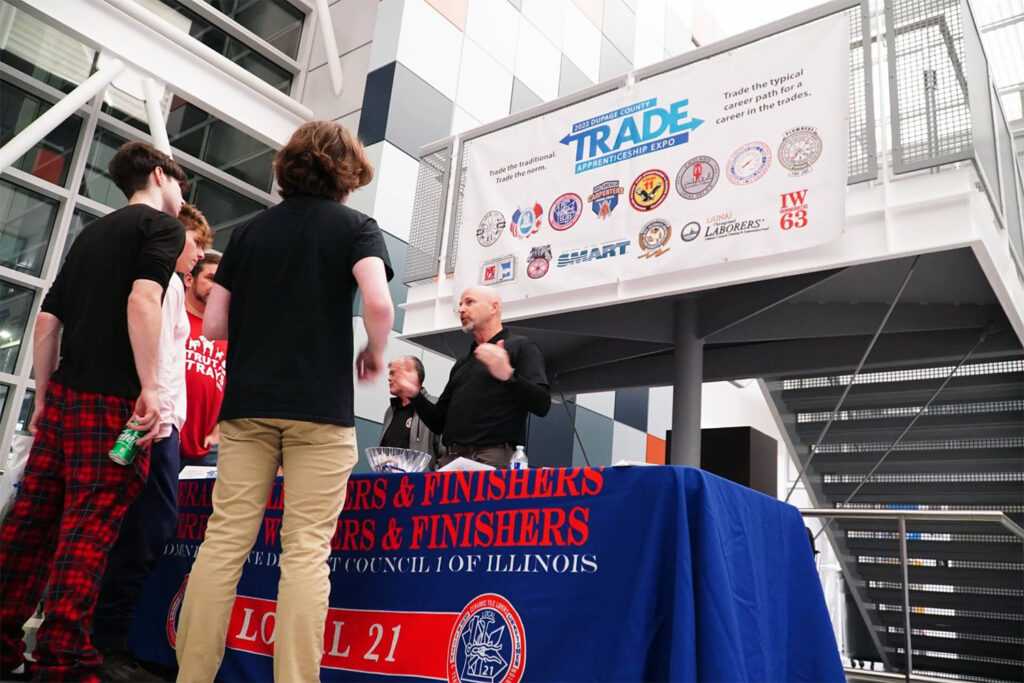Resources
CISCO’s resource page is dedicated to navigating and understanding prevailing wage laws and regulations, particularly in the context of federal projects. Whether you are a construction worker, contractor, or public body involved in government contracts, this page serves as a valuable guide to the intricacies of prevailing wage requirements in Illinois. From wage and fringe benefit details to overtime pay and certified payroll records, we’ve compiled essential information to help you stay informed and compliant. Explore the resources provided here to gain insights into prevailing wage obligations, rights, and the legal framework surrounding federal projects. Additionally, find guidance on addressing underpayments, potential legal actions, and access crucial tools for accurate record-keeping. Empower yourself with the knowledge and tools necessary to navigate the complexities of prevailing wage laws.

Fair Contracting
What is Prevailing Wage?
Prevailing Wage, as mandated by Illinois Prevailing Rate laws and the Federal Davis-Bacon Act, safeguards the construction industry, workers, and contractors. It ensures skilled workers receive wages and benefits in line with local standards, preventing the exploitation of unskilled labor from other regions to underbid established businesses. Acting in the public interest, it guarantees that projects funded with public money are constructed by contractors using highly trained workers. The laws require contractors and subcontractors to pay specified wages, benefits, and overtime rates based on the project’s contract, taking into account factors such as project type, funding source, work classification, and location. Learn more here.
Illinois Prevailing Wage Act (217-782-1710):
Requires contractors and subcontractors on public works projects to pay workers no less than the local prevailing rate, including hourly cash wages and fringe benefits. Violations may result in the payment of wage differences, 20% penalties, and 2% punitive damages. Repeat violations can lead to a two-year ban from public works projects. The state policy mandates equal pay for similar work within the same locality. Bid specifications must include specified rates, subject to Department of Labor revisions. Employees are protected from punishment for filing complaints or participating in proceedings related to the Act’s enforcement.
Davis-Bacon Act:
The Davis-Bacon Act states that prevailing wage rates must be paid to workers on federal public works projects that are over $2,000.
Copeland Anti-Kickback Act:
The Copeland Anti-Kickback Act makes it punishable by a fine up to $5,000 and/or by imprisonment up to five years to induce any person working on a federally funded or assisted construction project to give up any part of the compensation to which they are entitled under the Davis-Bacon Act or any other related Acts.
Contractor Info
- Public Works Project
- Prevailing Wage
- Fringe Benefits
- Overtime
- Posting of Wages
- Payroll Records
- Federal False Claims Act
What is a “Public Works Project?”
The term “public works” encompasses all permanent structures intended for public use, funded either entirely or partially with public funds. This includes projects financed through bonds issued under acts such as the Industrial Project Revenue Act, the Industrial Building Revenue Bond Act, the Illinois Development Finance Authority Act, or the Build Illinois Bond Act. Additionally, it covers projects financed, in whole or part, through loans or other funds provided under the Build Illinois Act.
Any public works project awarded without meeting prevailing wage prerequisites is considered void against public policy. In such cases, the contractor is prohibited from recovering any damages according to the contract terms and is limited to a claim for amounts paid for labor and materials supplied to the public body.
Furthermore, any officer, agent, or representative of a public body who willfully violates or fails to comply with any provision of the Act is deemed guilty of a Class B misdemeanor.
Any contract over $2,000 that is entered into for the actual construction, alteration and/or repair, painting and decorating, financed in whole or in part from federal funds.
How does prevailing wage affect me?
For non-union construction workers, prevailing wage laws offer crucial workplace protections regardless of union membership. Understanding your work classification is key to determining the prevailing wages and benefits applicable to your trade. Each craft classification mandates specific wage rates and fringe benefits, emphasizing the importance of the type of work performed over the initial job title. Misclassifications may lead to lower pay, making it vital for workers to be aware of and insist on accurate classifications to prevent potential violations and ensure fair compensation. Remember, the type of work you perform is more significant than your job title when it comes to prevailing wage considerations.
Prevailing Wage Law Requirements:
In adherence to Illinois Prevailing Wage laws, the following requirements are mandated:
- Inclusion of wage rates as part of contract documents.
- Obligation for contractors to maintain payroll records.
- Requirement for contractors to make payroll records accessible to the Illinois Department of Labor and the contracting agency.
- Each public body must adopt a Prevailing Wage Determination annually in June.
On federal projects, wages are categorized into basic wage and fringe benefits. The contract documents outline the base wage rate and a separate amount for fringe benefits, with variations across craft classifications. Employers can legally provide fringe benefits by either including the full amount on the paycheck or allocating it to health insurance and/or retirement plans. If the latter, employees must be informed in writing about their entitlement to benefits from these plans, which also require approval from the U.S. Department of Labor. Despite potentially covering multiple programs, fringe benefits on federal projects are consolidated into a single rate.
On federal projects, workers are eligible for overtime pay for hours worked beyond forty in a workweek. Overtime compensation must be at a rate not less than one and a half times the basic wage rate specified for the performed work classification(s). It is unlawful for employers to accumulate or carry over hours from one week to the next. Importantly, overtime pay is not mandated on the portion corresponding to fringe benefits.
For federal projects, employers are required to prominently display a copy of wages and fringe benefits in an easily accessible area at the project site. The posted wage sheet must detail the basic wage rate and fringe benefits for each distinct craft classification.
On federal projects, employers are mandated to submit Certified Payroll Records weekly to the contracting agency, disclosing each employee’s name, work classification(s), and the actual wages and benefits paid. Workers should maintain accurate records, including pay stubs, for each project and classification worked to validate any underpayment claims.
Keeping meticulous daily records, specifying the tasks and time spent on each, is crucial. Comparing these records to the employer’s certified payroll enables the contracting agency or the U.S. Department of Labor to identify underpayments. Reporting any underpayment is essential before project completion, as recovery afterward may prove challenging.
To recover wage underpayments on federal contracts, employees can potentially file against the project’s bond. The Miller Act stipulates that for federal contracts exceeding $25,000 for construction, alteration, or repair of public buildings or works, the awarded party must furnish a bond with surety. The Act outlines procedures and limitations for recovery under such bonds.
Federal False Claims Act: Contractors found submitting falsified payroll records for payment under government contracts may face consequences under the Federal False Claims Act. Individuals engaged in the following actions are subject to liability:
- Knowingly presenting a false or fraudulent claim for payment or approval to a U.S. Government officer, employee, or Armed Forces member.
- Knowingly making, using, or causing the use of a false record or statement to secure payment or approval of a false or fraudulent claim by the Government.
- Conspiring to defraud the Government by securing allowance or payment of a false or fraudulent claim.
Those found liable are subject to a civil penalty ranging from $5,000 to $10,000 for each separate false claim, in addition to three times the amount of damages sustained by the Government. Successful plaintiffs may receive a portion (typically between 15% to 30%) of the recovered amount, along with reasonable attorneys’ fees and costs from the defendants.
Quick Links
- Local Unions
- Contractor Associations
- State of Illinois
- International Unions
- Construction
- Labor Management Cooperation Committees
- Federal Agencies & Legislative
- Educator
- Other Public Outreach
AFL-CIO Illinois
BAC DC1
Boilermakers Local 1
Cement Mason Local 502
Cement Mason Local 11
Elevator Constructor Local 2
Heat & Frost Insulators Local 17
IBEW Local 134
IBEW Local 701
IBEW Local 150
IBEW Local 461
IBEW Local 117
IBEW Local 9
Iron Workers Local 1
Iron Workers Local 63
Laborers
Mid-America Carpenters Regional Council
Operating Engineers Local 150
Painters DC 14
Painters District Council 30
Pipefitters Local 597
Plumbers Local 130
Riggers
Roofers Local 11
SEIU Local 1
Sheet Metal Workers 73
SMART Local 265
Sprinkler Fitters Local 281
Teamsters Local 705
- American Subcontractors Association
- Associated General Contractors (AGC)
- Association of Subcontractors & Affiliates Chicago
- Chicagoland Associated General Contractors
- Chicago FCA
- Chicagoland Sheet Metal Contractors Association
- Illinois Regional Insulation Contractors Association
- Illinois Road & Transportation Builders Association
- Great Lakes Construction Association
- Mason Contractors Association of Greater Chicago
- Mechanical Contractors Association of Chicago (MCA)
- National Electrical Contractors Association (NECA)
- National Fire Sprinkler Association
- Northeastern Illinois LMCC
- Northeastern Illinois Sheet Metal Contractors Association
- Northern Illinois Painting & Drywalling Institute
- Plumbing Contractors Association Plumbing Council Midwest
- Underground Contractors Association
State of Illinois
Illinois Legislature
Illinois Department of Transportation
Capital Development Board
Illinois Department of Commerce & Economic Opportunity
Illinois Department of Employment Security
Capitol Fax
Illinois Press Association
Public Building Commission of Chicago
City of Chicago
- AFL-CIO
- AFL-CIO Building & Construction Trades Department
- Boilermakers
- Bricklayers & Allied Craftsmen
- Heat, Frost & Asbestos Workers
- International Brotherhood of Electrical Workers (IBEW)
- International Brotherhood of Teamsters (IBT)
- International Union of Operating Engineers (IUOE)
- Laborers Midwest Region
- Painters
- Plasterers & Cement Masons
- Plumbers, Pipefitters & Sprinkler Fitters UA
- Roofers, Waterproofers & Allied Workers
- Sheet Metal Workers International Association
The Blue Book of Building & Construction
Center to Protect Workers Rights
Chicagoland Construction
Chicagoland Construction Safety Council
Chicago Federation of Labor
Fox Valley General Contractors Association
F.W. Dodge Market Analysis Group
Occupational Safety & Health Administration (OSHA)
Target Construction Research (TCR)
